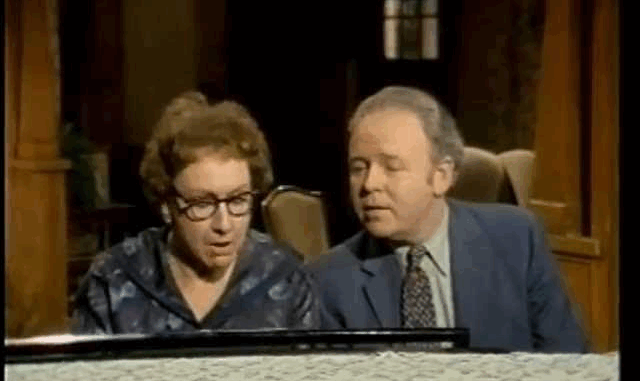
Few on-screen partnerships in television history have left as lasting an impression as Carroll O’Connor and Jean Stapleton in the iconic sitcom All in the Family. As Archie and Edith Bunker, the pair brought depth, conflict, and surprising tenderness to a show that redefined American TV.
Premiering in 1971, All in the Family broke ground with its unfiltered take on politics, race, and gender roles. At the center of the cultural storm were the Bunkers: Archie, the loudmouthed, bigoted blue-collar worker, and Edith, his gentle, often underestimated wife. While the show was provocative, it was the chemistry between O’Connor and Stapleton that gave it soul.
Carroll O’Connor, a classically trained actor with a flair for character work, transformed Archie into more than just a caricature. “He was prejudiced, yes, but he was also vulnerable and very human,” O’Connor said in a 1991 interview. His portrayal earned him four Primetime Emmy Awards and a complex place in pop culture—as both a satire of and a mirror to American ignorance.
Jean Stapleton’s performance as Edith brought an unexpected emotional center to the show. Initially dismissed by critics as a comic foil, Edith evolved into a character of quiet wisdom and moral clarity. Stapleton’s ability to navigate both slapstick humor and heart-wrenching drama earned her three Emmy Awards and the admiration of audiences across generations.
Off-screen, the two shared mutual respect and a deep understanding of the show’s cultural weight. “Carroll was the fire; I was the water,” Stapleton once said. Their dynamic balance allowed All in the Family to go beyond controversy and into emotional resonance.
Both actors used their platforms to advocate for social causes—O’Connor in mental health and Stapleton in women’s rights—proving their commitment to progress extended beyond the script.
Today, as reruns and streaming introduce new audiences to All in the Family, the legacy of O’Connor and Stapleton remains as powerful as ever. They didn’t just act—they challenged, provoked, and ultimately changed the face of television.
As pop culture historian Linda Reyes puts it, “They were more than performers; they were storytellers who held a mirror up to America—and had the courage not to look away.”
